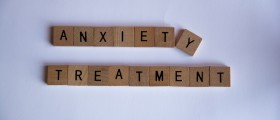
Anxiety and Men
Anxiety is a state of one's mind being prepared for future unpleasant or demanding events. This involves a change and restlessness affecting one's physical, mental, behavioral and perceptional self. Therefore, it triggers numerous changes in a person's personality. An anxious person, therefore, often feels sad and worried, waiting for the imminent, negative things to happen. However, anxiety is considered normal when there is a reason for it and it only happens occasionally. Yet, if you suffer from anxiety all of the time, even when you have no obvious reasons for it, you might be having problems of some other sorts. Then, you are probably suffering from an anxiety disorder, which, when left untreated can have catastrophic consequences on all of the above mentioned aspects of yourself.
The Impact of Anxiety
Anxiety disorder affects a person's everyday life completely. One is unable to cope with the reason of the fear, dread and nervousness since he or she might not be able to pinpoint it. Rather, these negative emotions continue affecting them and their cognitive processes, causing irritability, restlessness, impatience and many other negative feelings of this type, making life a much harder process.
This state of mind interferes with one's sleep, causing numerous sleeping disorders or a plain sleep deficiency. Once a person is constantly anxious, there is a large probability that he or she will not be able to sleep enough, or sleep at all. Subsequently, this state of body and mind is imminent to cause extreme fatigue, since the constant state of alertness is capable of eventually wearing out the anxious person's body, completely exhausting it.
Since a lot of hormones are involved into all of the previously mentioned, negative processes, they interfere with many other things in an organism, leading to various other imbalances. One of them is a diet and the digestive system. Basically, once troubled by anxiety for too long, an individual can experience a lack of appetite, diarrhea or nausea.
When you are nervous, both your cardiovascular and your respiratory systems undergo a change in a conduct. A great increase in blood pressure and pulse can give rise to a panic attack, causing shortness of breath which, in return, reduces the adequate amounts of air inhaled, creating other problems like dizziness, fainting etc.
Finally, excessive sweating and headaches are all common for a person suffering from an anxiety disorder. All these things, in the long run, can and will cause a complete deterioration of one's body and mind, making a person broken beyond repair, in the sense of lost bodily and mental harmony which cannot be restored again.
















Your thoughts on this
Loading...